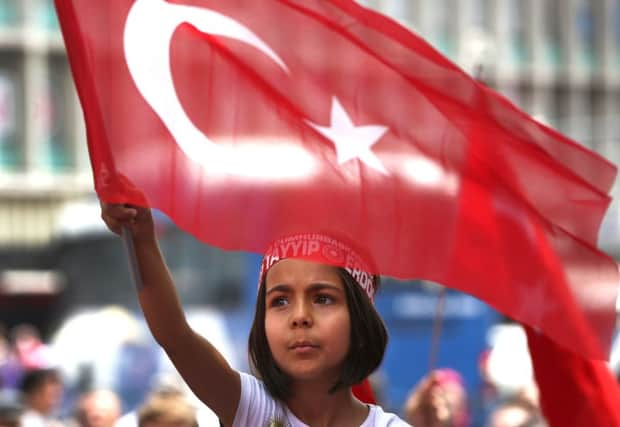Erdogan continues purge of coup suspects as teachers lose licences


It has been reported by the state-run Anadolu news agency that the teachers are believed to have ties to US-based cleric Fethullah Gulen, whom the government has accused of being behind the failed military coup last week. Gulen has strongly denied the accusations.
Turkey has already announced the firing of 15,200 teachers at state institutions, demanded the resignations of 1,577 university deans and halted all foreign assignments for state-employed academics.
Advertisement
Hide AdAdvertisement
Hide AdIn addition, thousands of other state employees have been fired in half a dozen agencies, all accused of being Gulen followers.
Two Turkish military officers detained for alleged involvement in the thwarted coup have fled from a military hospital in Istanbul where they were being treated.
The infantry captain and a lieutenant are suspected followers of Gulen, it has not been specified what kind of treatment the officers were receiving at the Gulhane Military Medical Academy.
Turkish police are warning the two officers may be armed and have distributed their photos in hopes they can be captured.
Meanwhile President Recep Tayyip Erdogan yesterday headed an emergency National Security Council meeting, which is the highest advisory body on security issues.
Access to the Wikileaks website in Turkey has been blocked after the group announced, following a failed coup by Turkish military units, that it would release a trove of documents on the country’s power structure. There was no immediate statement from Turkey’s Telecommunications Board, a government agency that regulates access to websites. The Turkish government has previously banned access to websites deemed to be carrying material critical of Turkey, including YouTube and Twitter.
Wikileaks said on Twitter that Turks who are blocked from accessing its website can “use a proxy or any of our IPs” to get access to the documents on Turkey’s ruling party